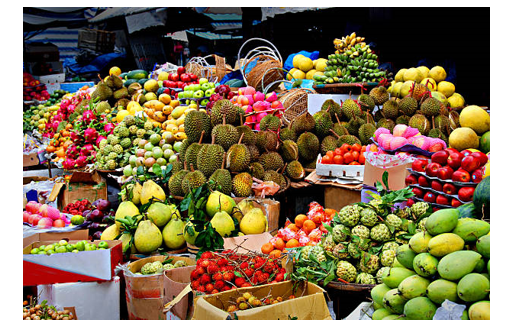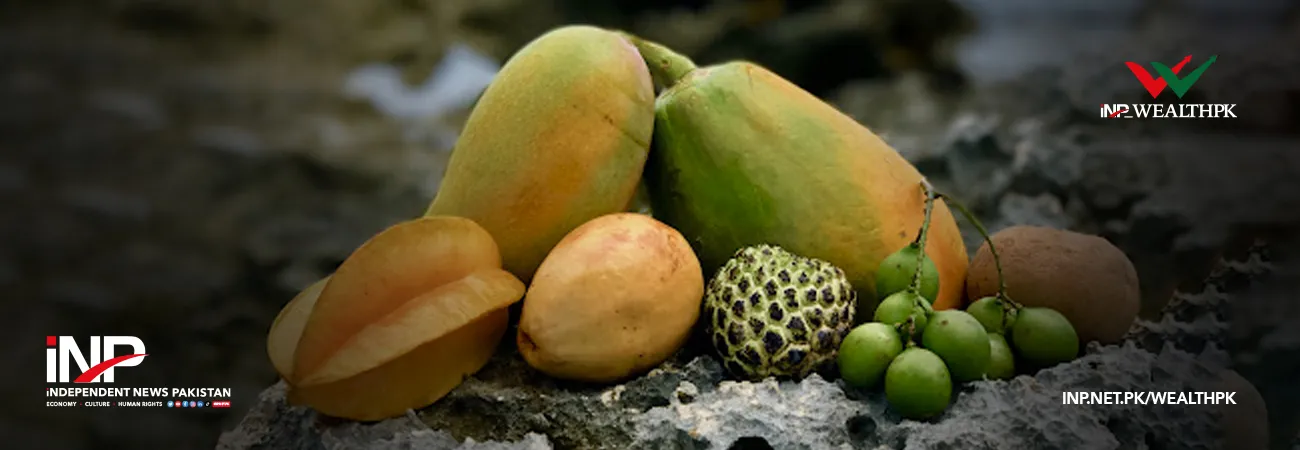INP-WealthPk
Arooj Zulfiqar
The introduction of high-yielding and pest-resistant tropical fruit varieties holds the key to unlocking Balochistan's agricultural potential, reports WealthPK.

"Balochistan, Pakistan's largest province geographically, has untapped potential in its agricultural sector, and its diverse climate and expansive arable land provide a suitable environment for cultivating a variety of crops and fruits. The province is already known for producing high-quality dates, apples and grapes," Haji Abdul Rahman Bazai, general secretary Balochistan Zamindar Action Committee, told WealthPK. "However, farmers often struggle with low yields and significant crop losses due to pests and diseases, which ultimately impact their profits and livelihoods." In Balochistan, fruit crops are grown over an area of 149,726 hectares with a yield of about 0.9 million tonnes annually. Rahman said: "Introducing high-yielding and pest-resistant tropical fruit varieties could transform Balochistan's agriculture. These varieties are designed to thrive in specific climatic conditions, offering numerous benefits. High-yielding varieties increase productivity per hectare, enabling farmers to harvest more produce from the same land. This boost in productivity directly enhances farmers' profits." He said: "Pest-resistant varieties reduce the reliance on chemical pesticides, lowering production costs and minimising environmental impact.
These varieties are less susceptible to common pests and diseases, ensuring a more stable and reliable yield. As a result, Balochistan's agricultural output could see substantial growth, strengthening the local economy through increased exports." "Success stories from other regions, like the introduction of pest-resistant mango varieties in Sindh, highlight the potential benefits. Balochistan can consider similar tropical fruit varieties. However, several challenges must be addressed to achieve this transformation. One major obstacle is the lack of access to high-quality seeds and planting materials. Farmers often struggle to obtain these essential resources, hindering the adoption of improved fruit varieties. Additionally, limited knowledge and training in modern farming techniques prevent farmers from maximising the potential of these new varieties," he said. Moreover, Rahman said infrastructure deficiencies, particularly in irrigation and transportation, also posed significant challenges.
"Inadequate irrigation systems lead to inefficient water use and reduced crop yields, while poor transportation infrastructure hampers the timely delivery of produce to markets, affecting the freshness and quality of the fruits." He said investment in agricultural research and development was essential for these improvements to take root. "Collaboration between local agricultural universities, research institutions, and international experts can facilitate the development and spread of improved fruit varieties. Government and private sector initiatives are crucial. Subsidies for high-quality seeds, training programmes for farmers, and better irrigation infrastructure can create a supportive environment for adopting these advanced varieties. By embracing these innovative solutions and addressing the existing challenges, Balochistan can unlock its agricultural potential, boosting profits and contributing to the region's economic development," underscored the general secretary of the Balochistan Zamindar Action Committee.
Credit: INP-WealthPk













